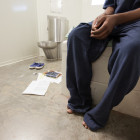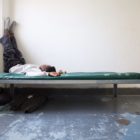
Despite outcry over seclusion at juvenile detention centers, Tennessee lawmakers fail to pass oversight bill
|
Children in Rutherford County, have been arrested and jailed at rates unparalleled in the state. This story reports on an investigation of why that is happening — and other ways the justice system there singles out children. A bill that would strengthen oversight of Tennessee’s juvenile detention centers has failed, despite a concerted push for reform after multiple county-run facilities were found to be locking children alone in cells.



